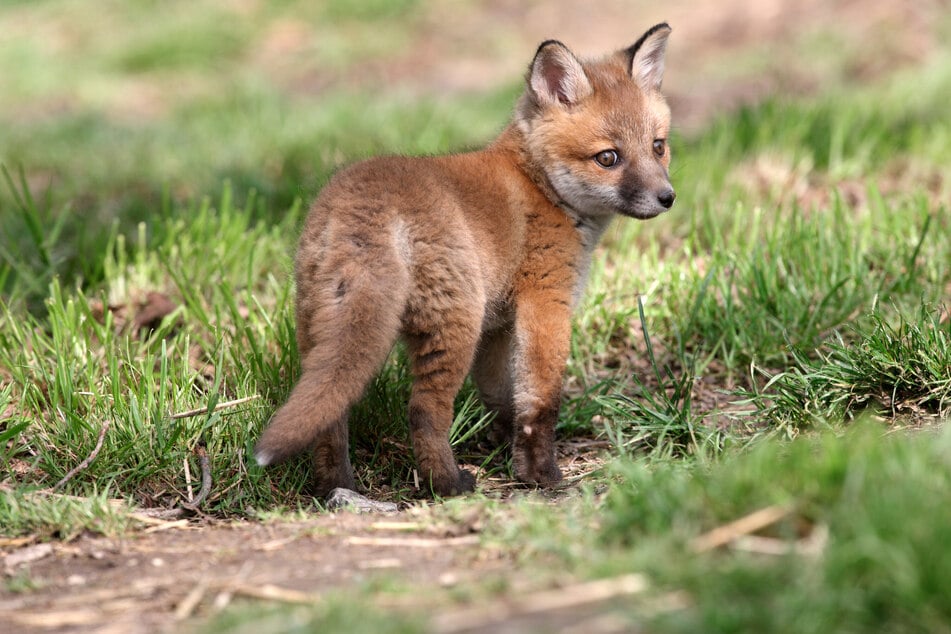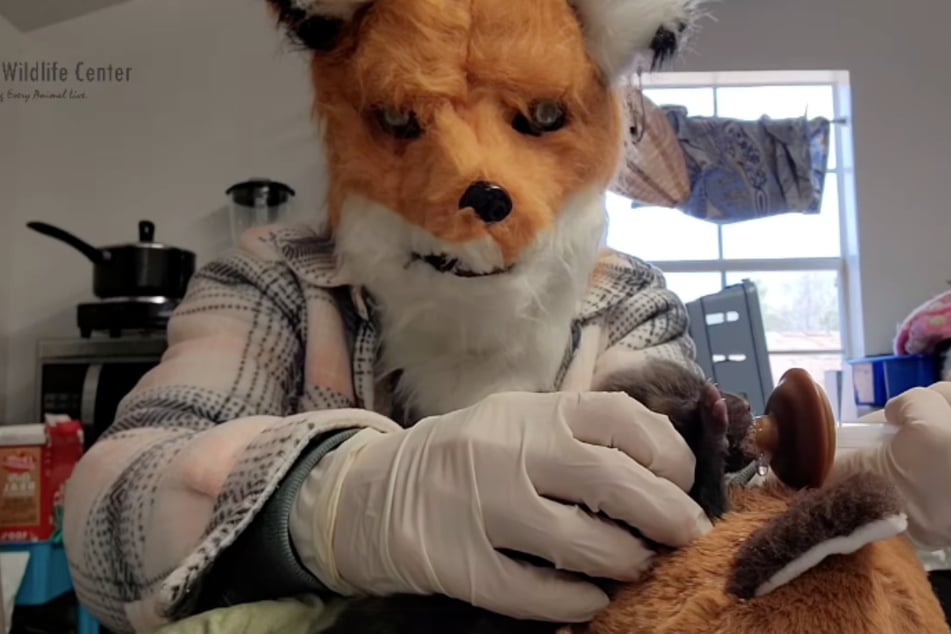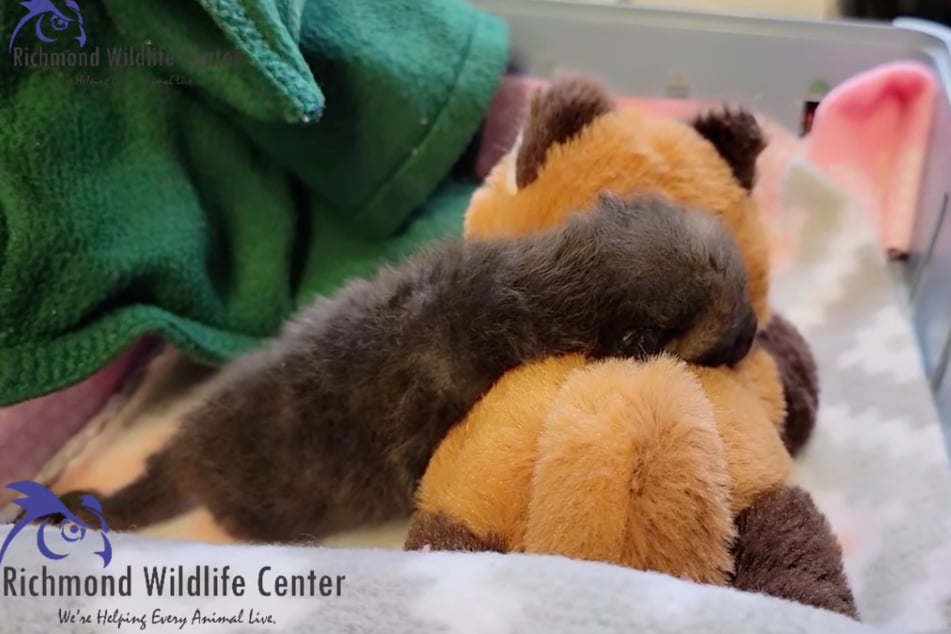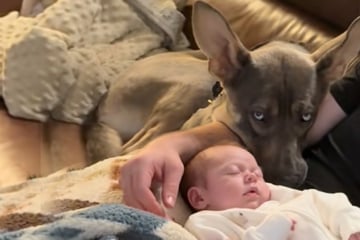Animal rescuers don bizarre costumes to take care of baby fox!
Richmond, Virginia - To take care of an orphaned baby fox and keep the animal from becoming too used to humans, caregivers at the Richmond Wildlife Center in Virginia came up with a foxy idea.

A man was walking his dog one chilly February evening in Richmond, Virginia when he heard a soft squeaking sound.
He cautiously approached and discovered a small bundle of fur!
Initially, the man thought he'd found a young cat. Animal rescuers, however, quickly realized that the critter wasn't a kitten, but rather a kit – aka a baby fox!
When the red fox kit was discovered, it weighed just 80 grams and was less than 24 hours old. Its umbilical cord was still attached!
Melissa Stanley, Executive Director of the Richmond Wildlife Center, said in a Facebook post that they tried to locate the kit's mother. Sadly, they found that the mama had been trapped and removed from the property.
Stanley and her team wanted to nurse the kit but didn't want the wild animal to get too attached to humans. That's when they figured out a unique way to feed the kit!
Rescuers donned a fuzzy fox mask and rubber gloves for nursing the baby! The organization shared a video of its bizarre-looking yet inventive feeding scheme to Facebook.
Animal rescuers don't want the fox to imprint on humans

"The goal is to release animals back into the wild," Stanley told the Associated Press.
"Not only to give them a greater chance of survival but to recognize their own species and to reproduce to carry on their wildlife population."
In other words, rescuers want to keep the kit wild, so they're pretending to be foxes themselves every two to four hours for feeding sessions!
They also make sure that the kit rests on a stuffed animal that imitates their mother instead of cuddling with their caregivers.
"It's important to make sure that the orphans that are raised in captivity do not become imprinted upon or habituated to humans," they explained on Facebook.
"To prevent this, we minimize human noises, create visual barriers, reduce handling, reduce multiple transfers between facilities, and wear masks."
The team found three other kits in the area, all around the same weight.

Animal rescuers hope the baby foxes will eventually be able to return to the wild, but until then they'll keep wearing the furry masks for feedings.
Cover photo: Collage: 123RF/mikelane45 & Screenshot/Facebook/Richmond Wildlife Center

